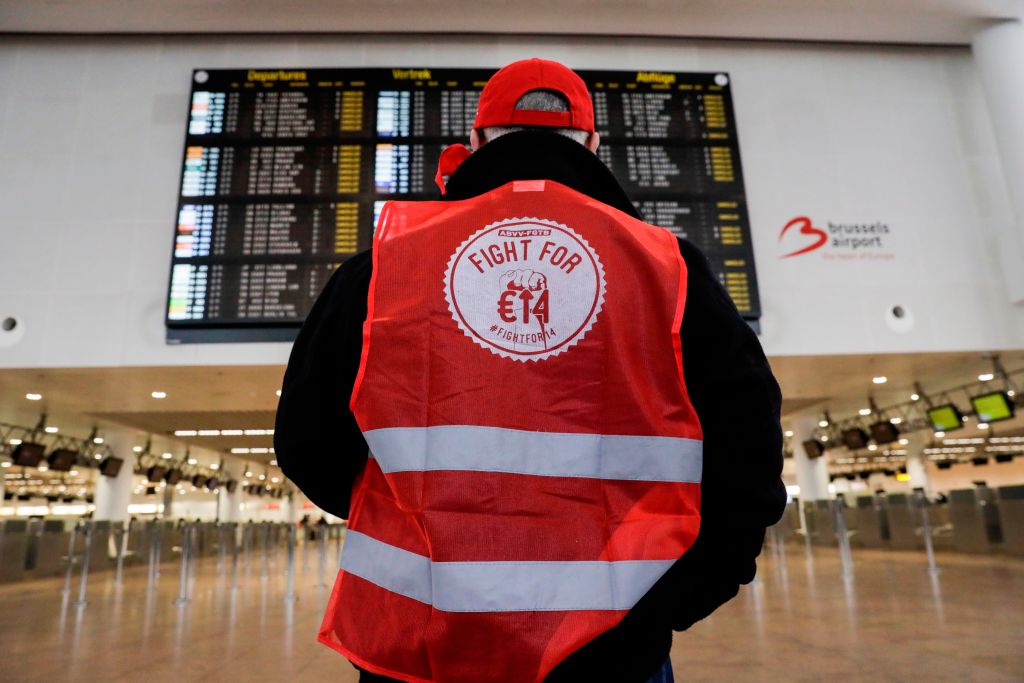

An ABVV-FGTB union member stands at Brussels national airport in Zaventem, on the outskirts of the Belgium capital, on February 13, 2019, during a national general strike. - Belgian airspace was to be closed to all flights below 8,000 metres on February 13 as a national strike threatened to bring the European country to a standstill. (Photo by THIERRY ROGE / BELGA / AFP) / Belgium OUT (Photo credit should read THIERRY ROGE/AFP/Getty Images)
Over 50 percent of Belgian workers are unionized, so when the unions went out on a 24-hour strike on the evening of Feb. 12, they shut the country down.
Air traffic controllers struck, so airplanes had to fly around Belgian airspace. Some 30 ships in the port of Antwerp, among the busiest in Europe, had to wait to be unloaded. Buses and trains didn’t run; schools and day care centers didn’t open. Police replaced prison guards who walked out. Most supermarkets closed.
Factories closed. The country lost millions of euros in canceled production.
The strike coincided with a NATO defense ministers’ meeting. Even the NATO officials were not exempt. They had to land in nearby countries and drive to their meeting.
Robert Verteneuil, president of the General Federation of Belgian Labor, a trade union with about 1.2 million members, said in a 15-minute interview on public radio: “What we want is to tell employers, whoever they are, that we’re sick of them putting all the dough that we create in their pockets. It’s time to give some of it back to the workers.”
If Belgian workers don’t get a raise, there will be more strikes, according to Verteneuil.
Download the PDF Black and white version In over 1,000 U.S. cities Workers mobilized for…
Adapted from the author’s presentation at a May 4 webinar organized by the International Manifesto…
The following is part one of a talk given by the author to a meeting…
The island nation of Cuba has consistently struggled with one economic barrier above all others:…
Dozens of activists responded to a call by the United Farm Workers (UFW) for an…
In its ongoing genocidal campaign against the Palestinian people, Israel used drones May 2 to…